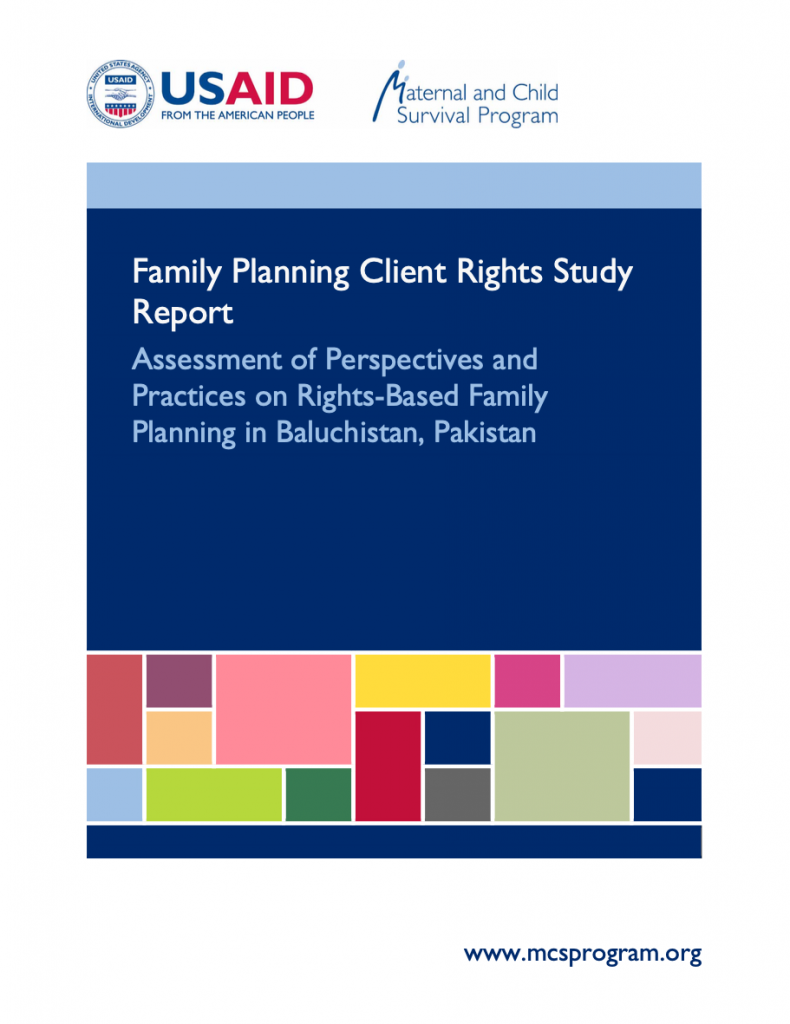
In Pakistan, the Maternal and Child Survival Program (MCSP), funded by the US Agency for International Development (USAID), worked in Sindh, Baluchistan, and Punjab provinces with a focus on improving women’s and children’s health by increasing the availability, accessibility, and utilization of family planning (FP) services. According to the 2017-18 Pakistan Demographic and Health Survey […]
Read More…
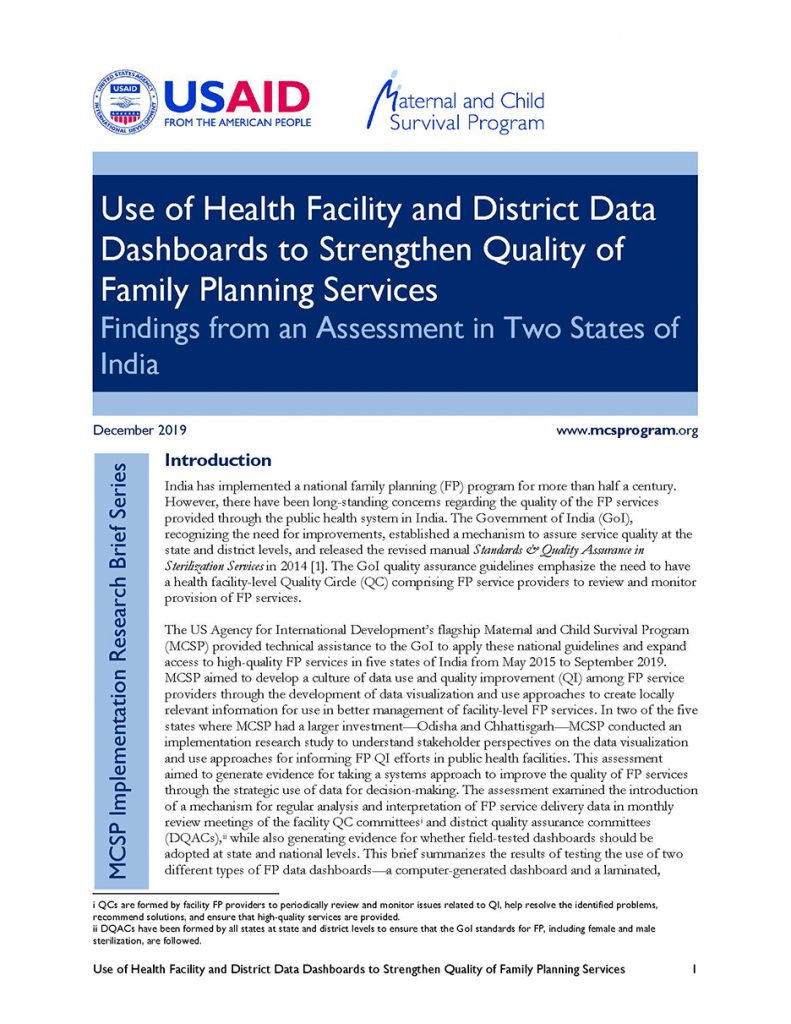
In five states of India, MCSP aimed to develop a culture of data use and quality improvement (QI) among family planning service providers through the development of data visualization and use approaches to create locally relevant information for use in better management of facility-level family planning services. In two of the five states where MCSP […]
Read More…
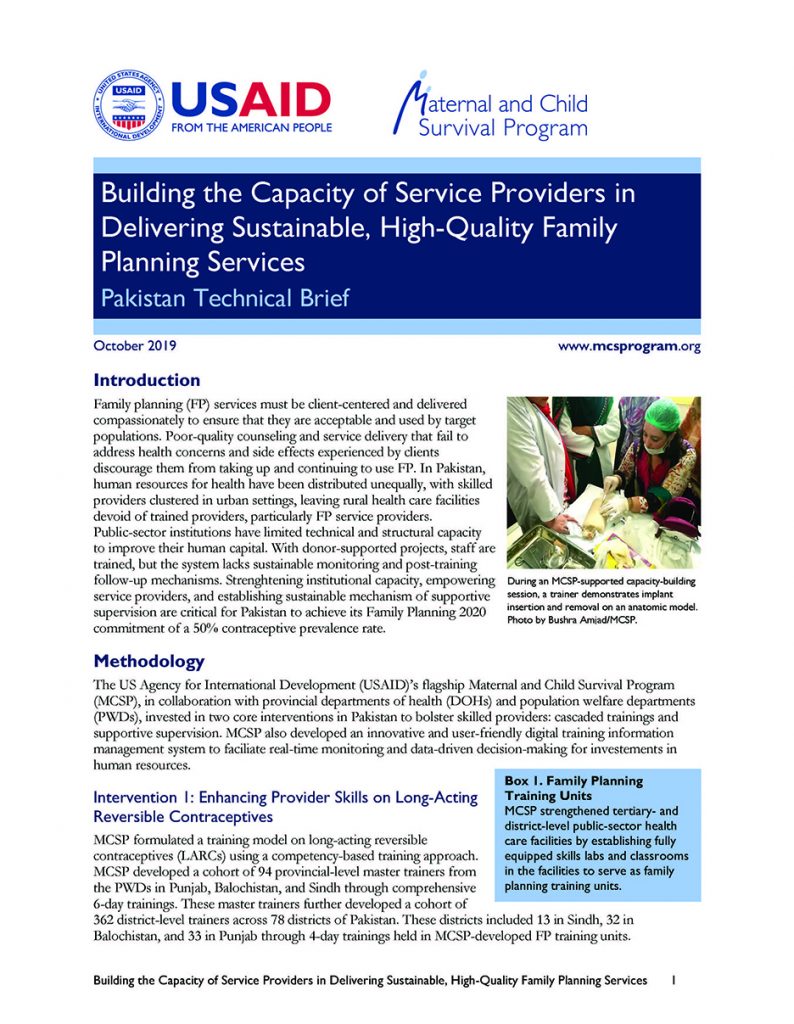
MCSP, in collaboration with provincial departments of health (DOHs) and population welfare departments (PWDs), invested in two core interventions in Pakistan to bolster skilled providers: cascaded trainings and supportive supervision. MCSP also developed an innovative and user-friendly digital training information management system to faciliate real-time monitoring and data-driven decision-making for investements in human resources. […]
Read More…
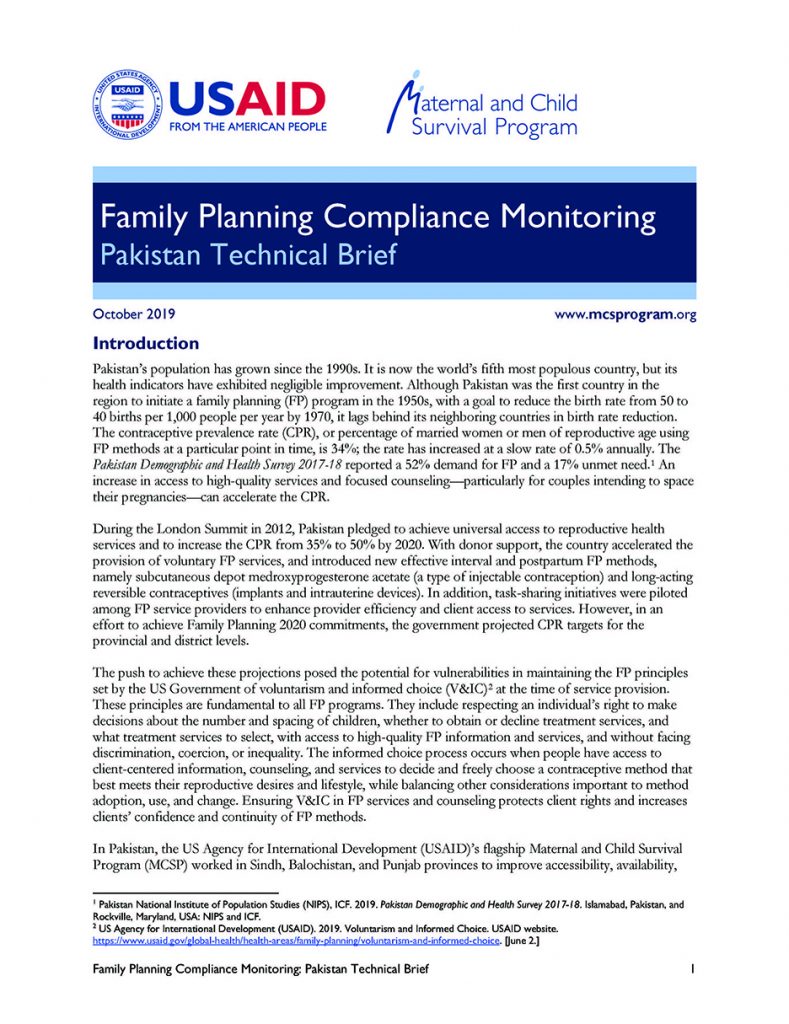
In Pakistan, MCSP worked in Sindh, Balochistan, and Punjab provinces to improve accessibility, availability, and use of family planning services, especially in underserved communities. MCSP implemented innovative approaches to strengthen the capacity of provincial departments of health and population welfare departments in providing family planning services and enforcing the principles of voluntarism and informed choice […]
Read More…
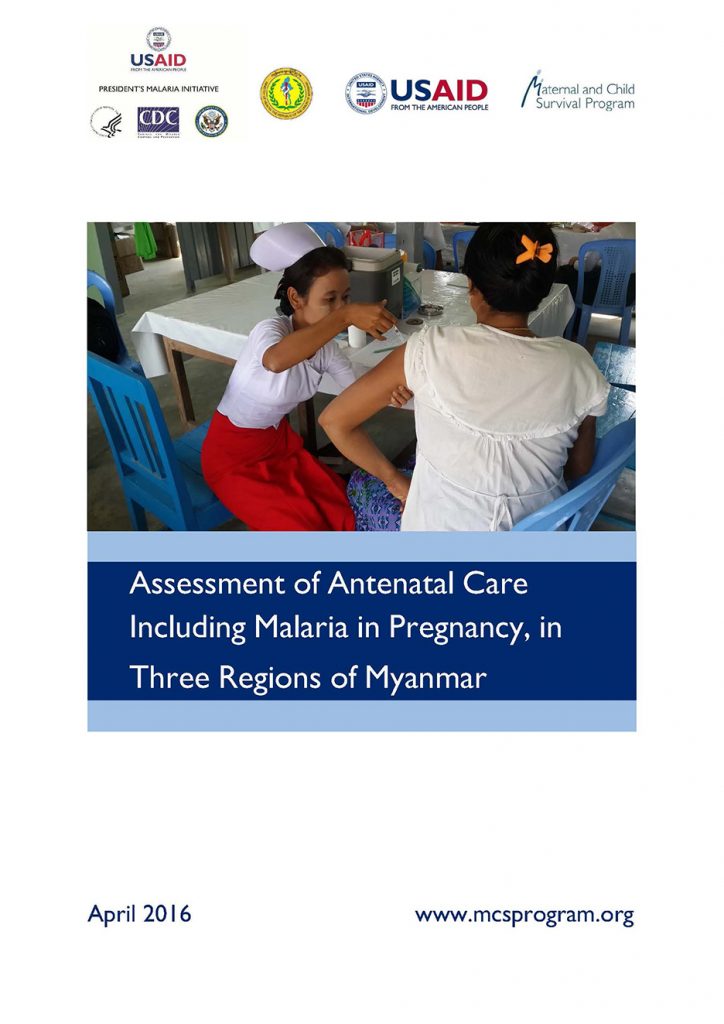
MCSP is working closely with the Ministry of Health and Sports (MOHS) in Myanmar to implement programs to help meet the country’s maternal and newborn health service- strengthening needs. As part of MCSP’s work, an assessment of antenatal care services was conducted to better understand the current state of services related to the prevention and […]
Read More…
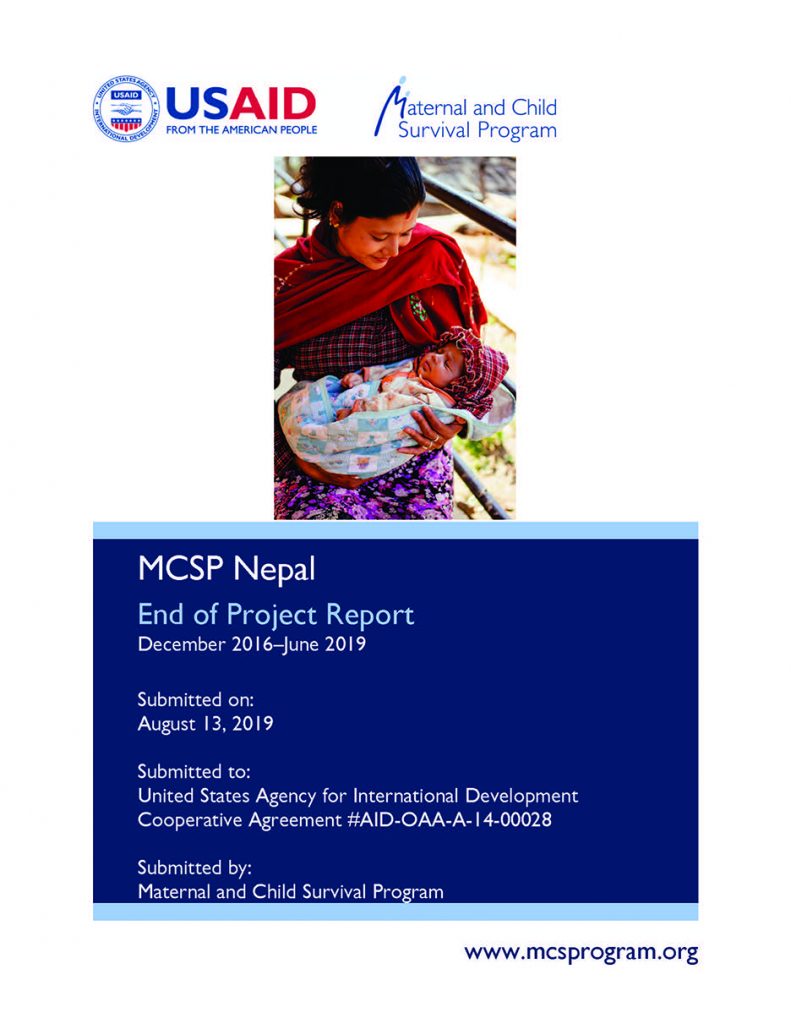
From 2016 to 2019, MCSP Nepal collaborated with the Ministry of Health and Population (MOHP) to develop and test strategies to empower private providers to deliver high-quality care for sick newborns and young infants. This included exploring safety and quality of care, promoting access to and use of clinical protocols, and establishing functional mechanisms to […]
Read More…
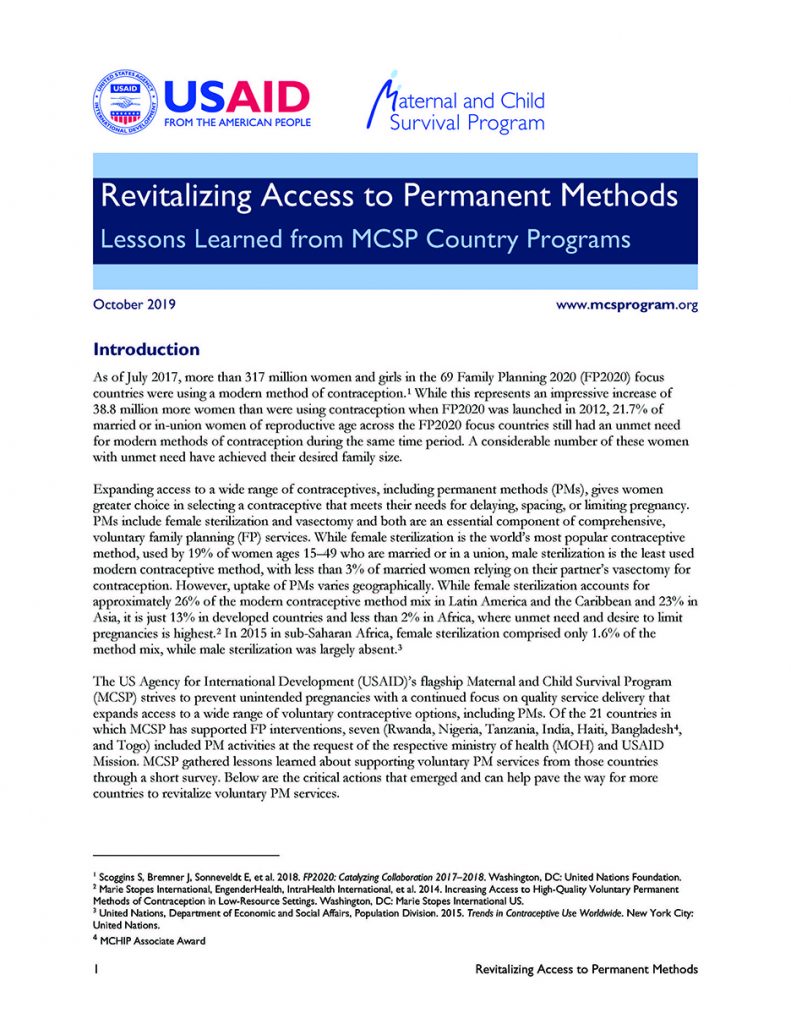
MCSP strives to prevent unintended pregnancies with a continued focus on quality service delivery that expands access to a wide range of voluntary contraceptive options, including permanent methods (PM). Of the 21 countries in which MCSP has supported FP interventions, seven (Rwanda, Nigeria, Tanzania, India, Haiti, Bangladesh, and Togo) included PM activities at the request […]
Read More…
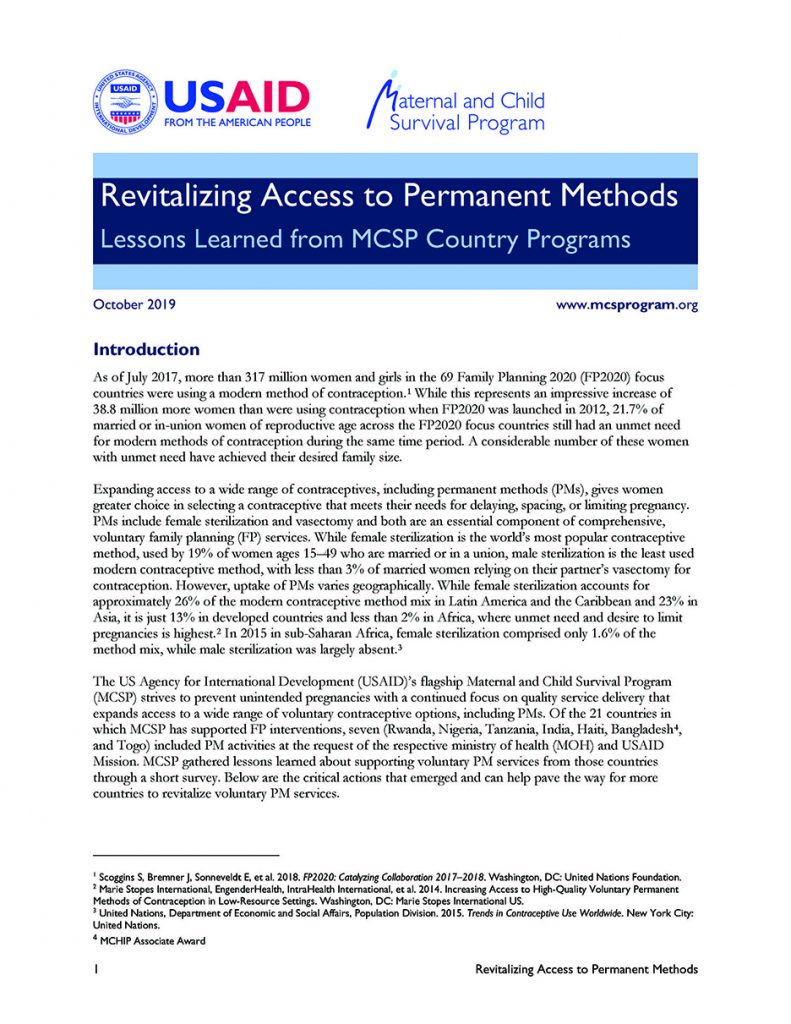
MCSP strives to prevent unintended pregnancies with a continued focus on quality service delivery that expands access to a wide range of voluntary contraceptive options, including permanent methods. Of the 21 countries in which MCSP has supported family planning interventions, seven (Rwanda, Nigeria, Tanzania, India, Haiti, Bangladesh, and Togo) included permanent method activities at the […]
Read More…
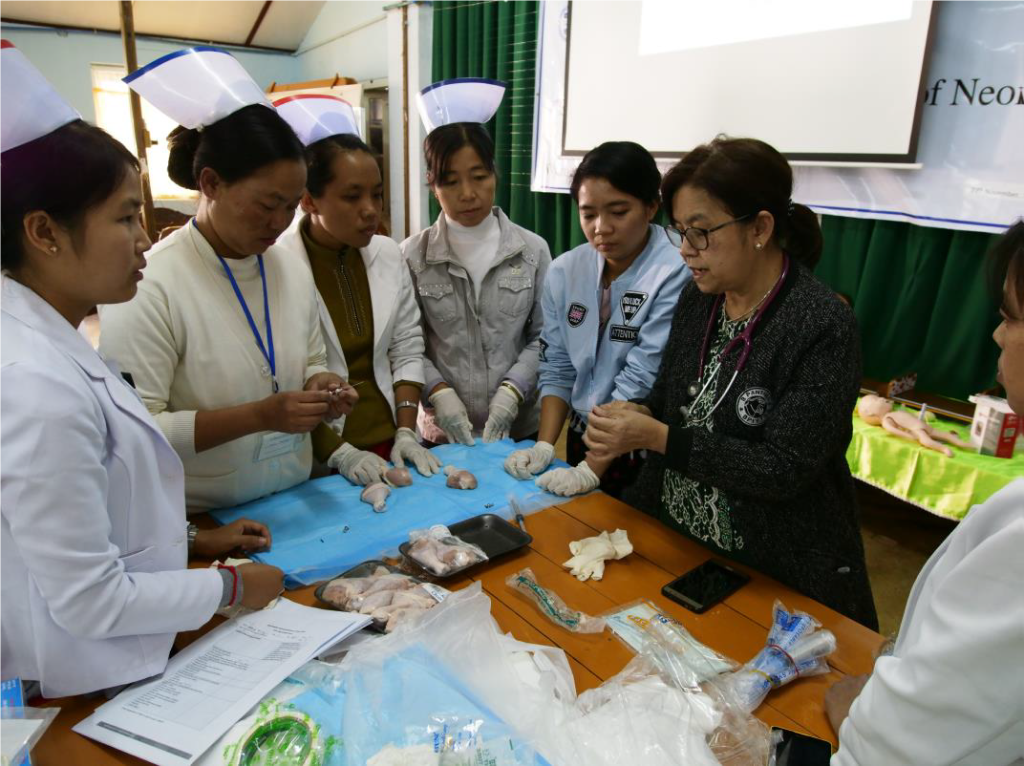
In Burma, newly trained health workers are now promptly and effectively managing newborn and childhood illnesses, helping to reduce needless deaths. […]
Read More…
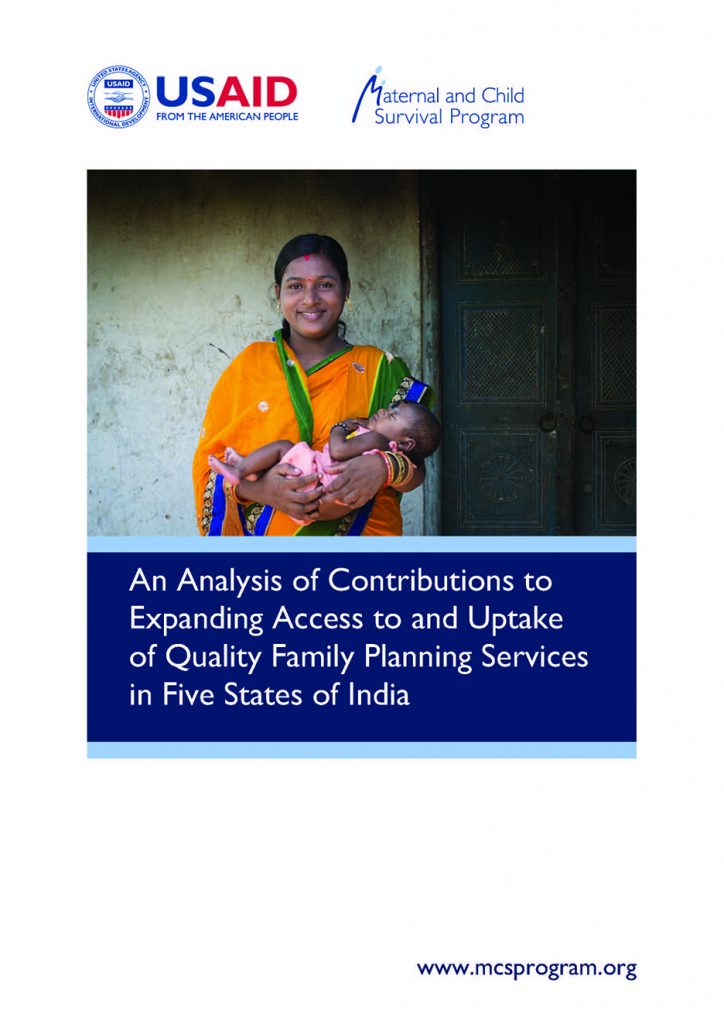
In partnership with the MoHFW, MCSP evaluated the impact of family planning interventions supported by the program in five states of India using a “Contribution Analysis” (CA) methodology to explain the results within the complex adaptive systems within which they were achieved. This report summarizes the programmatic achievements and implications and offers recommendations for future […]
Read More…










